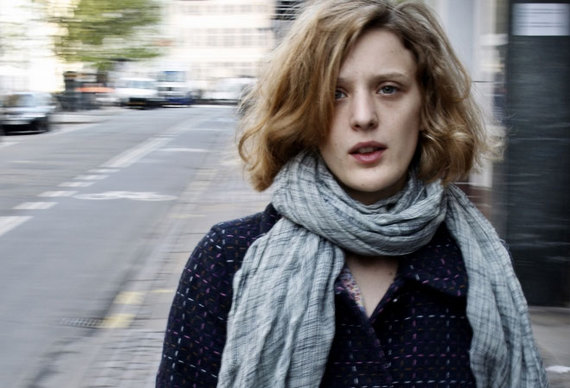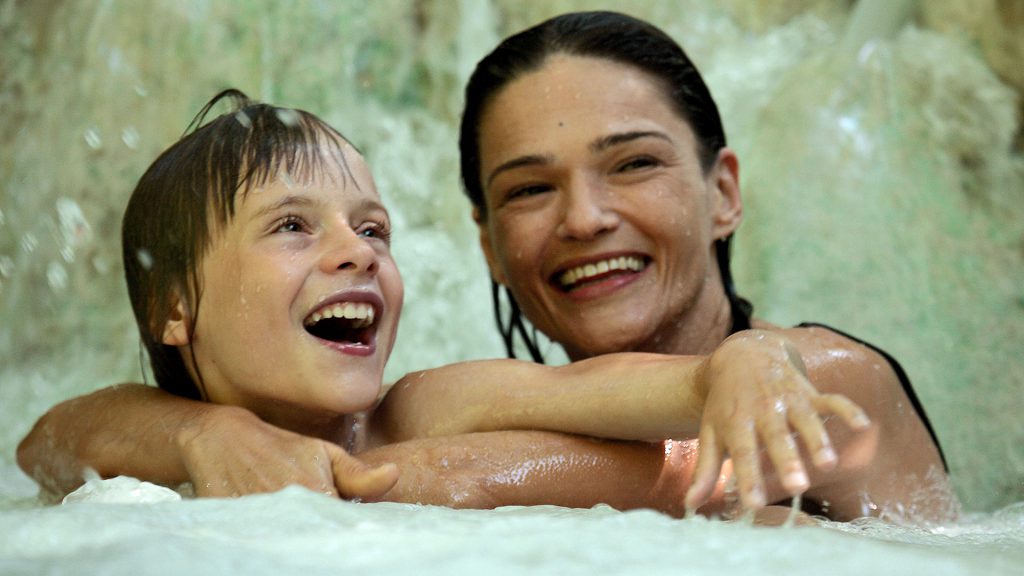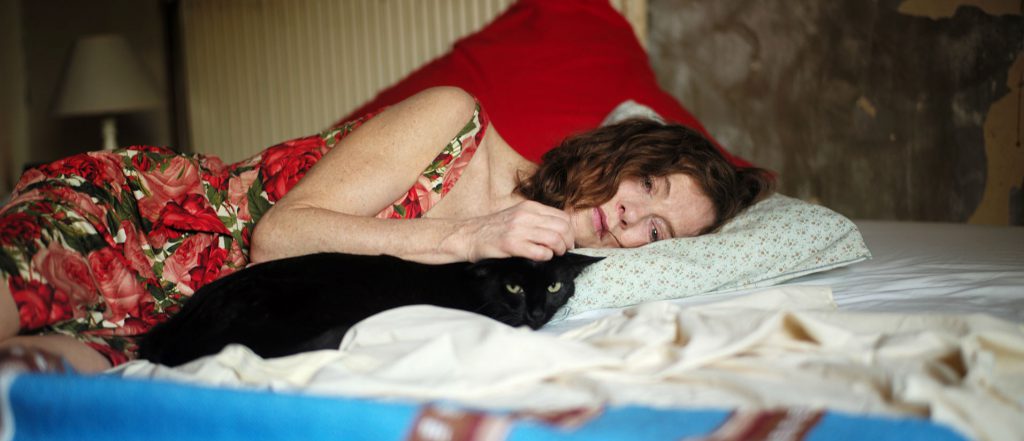(THIS ARTICLE IS MACHINE TRANSLATED by Google from Norwegian)
In recent years, Mia Hansen-Løve has made her mark as one of French film's finest directors. With the cinema current The day tomorrow she resumes some of the themes from her previous films All Is Forgiven, Father of my Children og Goodbye First Love, while showing her way further. Unlike her last two films, these films have never been shown in Norwegian cinema before. When the country's biggest cinematographer now dedicates a retrospective program to the French director, it is well worth a visit.

When Mia Hansen-Løve (b. 1981) debuted All Is Forgiven in 2007, she had already established herself as a writer for the French film magazine Cahiers du Cinéma and starred in director Olivier Assaya's films Late August, Early September (1998) and Sentimental Destinies (2000). Assaya and Hansen-Løve are married today, have children and are each other's most important artistic partners.
I All Is Forgiven we first meet Pamela as a young girl. The father Victor, a French author with a growing drug problem, and the Austrian mother Anette speak almost the same language, and even less with each other. The relationship goes awry with Victor's intoxication problems, before Anette leaves him and takes her daughter abroad. Only years later, when Pamela is in her teens, she meets her father again in Paris. The meeting will be a decisive factor for both of them, and Hansen-Løve portrays with compassion how the relationship between children and parents develop over time. But the film is not only a strong account of the father-daughter relationship – it is also an intelligent drama of forgiveness. The film shows the way to Hansen-Løves next film.
Jean-Jacques Rousseau's book Julie, or The New Héloïse becomes a central reference work in the film.

Variability. For also in Father of My Children from 2009, the father role is central, but here, unlike the first film, the successful film producer Canvel is at the center of the film's action. Despite artistic success, he has a debt problem and surprisingly takes his own life. He leaves with this not only the children, but also leaves to the widow to clean up the economy and other secrets after his death. The film is based on the life of producer Humbert Balsan. He and Mia Hansen-Løve had an agreement on cooperation before he died. It never materialized, and the film, like the first film, is a reflection on family relationships under pressure, but also on how far artistic ambitions can drive one.
Mia Hansen-Lion's third film, Goodbye First Love, on the other hand, is a fine-tuned portrayal of adolescence, and is perhaps closer to the director's own experiences as a woman. The 15 year old Camille is passionately in love with Sullivan, who leaves her in favor of her own freedom and quest. Only much later, when Camille begins to study architecture, does she regain faith in the future and love. She meets an elderly architectural professor, played by the Norwegian, gifted actor Magne Håvard Brekke, and finds her place again in his life with him. The film is about how Camille goes from being a teenager to becoming a young woman, and about life's change over time.

Breakthrough. It was only with the fourth movie Eden in 2014 that Mia Hansen-Løve made herself known to a Norwegian – and international – audience. In this feature film, which is based on Hansen-Løve's own brother Svens experiences as a DJ when French electronics broke through internationally, is about a young boy who loses himself to the music. The film is in many ways a generational portrait that gives associations to Joachim Trier's film universe. And maybe it's especially Tere's latest movie Louder Than Bombs from 2015 (which recently won the Nordic Council Film Prize) which shows connection lines to Mia Hansen-Løve's latest film. For also in The day tomorrow Isabelle Huppert plays a central and leading role. It is thanks to her in the role of Nathalie – an active philosophy professor living in Paris – that the film is winning and becoming Hansens-Løve's international breakthrough.
With well-written and truthful dialogues, which are suddenly replaced by poetic moments and suggestive music, Hansen-Løve reflects in The day tomorrow again about how the relationship dynamics in a family change over time – but that's not all. For here philosophy and politics also play a crucial role. Without using unnecessary tools to portray the consequences of a crime, Hansen-Løve in this film not only explores the role of women and mother more specifically, but what it means to live a life in freedom, in pact with nature and with it self. In this film, it is not primarily the man, the children, or the publisher who makes Nathalie free, but her own mother. It is her mother's repeated and hysterical phone calls that make Nathalie drop her hands at all times and run into her. The friendship of her old philosophy student Fabien, on the other hand, becomes, as Fabien chooses to move out of Paris to a French mountain town, a picture of the opposite – to a life of freedom and pact with nature. Perhaps it is therefore not without reason that it is the philosopher Jean-Jacques Rousseau, the father of the social pact, Nathalie turns to when she unexpectedly gains a new freedom she does not know what to do with.
Nathalie, surprisingly, does not respond with shouts or screams, but with restrained expressions and an underlying hurt as she is abandoned to another woman. It is in the hours of the students, where quotes are read by philosophers, that she reflects on what she herself experiences. It is especially Rousseau's book Julie, or The New Héloïse (1761) which becomes a central reference work in the film. As the title of the book suggests, it refers to the famous love story and the exchange of letters between Abélard and Héloïse – a passion that survived the man's castration, both monastic life and separation. Through hundreds of letters, the search of love is portrayed between the pious Miss Julie and the insatiable house teacher Saint-Preux. Like this story, parts of it also take place The day tomorrow at the foot of the Alps, between Nathalie and her former philosophy student Fabien. But unlike Rousseau, this relationship does not appear erotic – rather, like the philosopher himself, it becomes a way of reflecting on the passing of time and society. With parents who are both philosophy professors, one can suspect Hansen-Løve to know well the philosophy's reflection room and reasoning.

The future. In a more philosophical way than in his earlier films, Hansen-Løve reflects in The day tomorrow around what total freedom is, or can be said to be. Focusing away from the father, himself and the brother and over to the mother creates The day tomorrow so far a joined unit in Hansens-Løve's films about families under pressure and change over time. For this movie is not primarily about the choices Nathalie makes, but about how she stands for the future, until tomorrow. What may at first appear to be a resignation is rather experienced – if you take the film's original title L'avenir ("The future") in earnest – therefore as a possible new beginning, where everything in a way can or does not happen. What tomorrow will bring is, as Jacques Derrida emphasizes, uncertain. It will therefore be exciting to see what drama plays out in Hansen-Løve's next film. Surely it is at least that she is with The day tomorrow has entered the ranks of French film's finest auteurs.
Hansen-Løve's films appear in a complete retrospective at the cinemas in Oslo, Bergen, Tromsø and Trondheim in November and December. See the respective cinematographic programs for more information.


